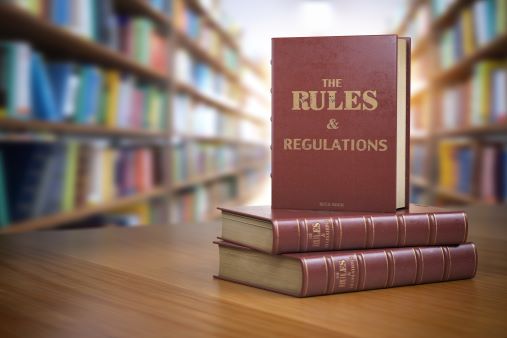Barnes & Thornburg Commercial Litigation Update, March 2018
It’s now 2018 and your company’s new year gets off to a rough start. You’ve just discovered that several former employees have misappropriated and are using your company’s secret sauce recipe with a competitor. Your investigation uncovers that, although the former employees continue to use your confidential recipe, the actual theft of the recipe occurred just before May 11, 2016, when Congress enacted the federal Defend Trade Secrets Act, 18 U.S.C. § 1836 et seq. (DTSA), which provides a federal cause of action for trade secret misappropriation.
Prior to DTSA’s enactment, trade secret misappropriation was largely governed by state law, forcing many employers to pursue such claims in state court. “Great,” you say, “the DTSA allows me to sue those thieves in federal court!” After all, filing in federal court has its advantages. For instance, federal courts are generally better at handling interstate disputes than state courts, they typically have a better grasp on complex technological issues (which abound in many trade secret cases), and they often provide for quicker, more efficient relief.
Alas, by its terms, DTSA appears to provide a cause of action only for misappropriation occurring on or after its May 11, 2016, enactment date. Pub. L. No. 114-153, 130 Stat. 376, 381-82 (2016). However, all is not lost! Despite the fact that the actual theft of your company’s trade secret occurred prior to May 11, 2016, you can still sue under the DTSA if the misappropriation “continued” after DTSA’s enactment date.
Pursuant to DTSA, prohibited misappropriation includes both the acquisition of a trade secret and its disclosure or use. 18 U.S.C. § 1839(5). Under a “continuing misappropriation” theory, trade secret misappropriation will be deemed to continue if the perpetrators continue to use, disclose, or access the confidential information at issue after the initial theft.
The growing trend in federal courts is to allow a claim to proceed, even if the acquisition occurred prior to the DTSA’s enactment, if the disclosure or use of a trade secret continued after enactment. See, e.g., Marimar Textiles, Inc. v. Jude Clothing & Accessories Corp., 2017 WL 4391748, at *6 (D.N.J. Oct. 2, 2017); Sleekez, LLC v. Horton, 2017 WL 1906957, at *5 (D. Mont. Apr. 21, 2017); High 5 Games, LLC v. Marks, WL 349375, at *6 (D.N.J. Jan. 24, 2017).
If you can demonstrate that the misappropriation of your trade secrets continued after May 11, 2016, the DTSA remains a viable tool for relief. This is in stark contrast to the Uniform Trade Secret Act (UTSA), which is the model for many states’ trade secret laws. The UTSA provides that, “[w]ith respect to a continuing misappropriation that began prior to the [UTSA’s] effective date, the [UTSA] does not apply to the continuing misappropriation that occurs after the effective date.” UTSA § 11. The DTSA does not contain such language, cementing for many courts DTSA’s applicability to continuing misappropriation after the enactment date. For example, in Brand Energy & Infrastructure Servs., Inc. v. Irex Contracting Grp., a Pennsylvania federal court allowed a DTSA claim to proceed even though the initial misappropriation occurred before DTSA’s enactment because the defendants allegedly continued to use the plaintiff’s proprietary documents in defendants’ day-to-day business. 2017 WL 1105648, at *4 (E.D. Pa. Mar. 24, 2017). The Brand Energy court relied heavily on the absence of UTSA-type language in the DTSA.
So, fear not, aggrieved employer. Despite your former employees’ acquisition of your top-secret recipe prior to May 11, 2016, you can still sue in federal court under DTSA if those employees continue to serve up your secret sauce after that date.
Christine E. Skoczylas is the Co-Chair of the Firm’s Commercial Litigation Practice Group and a partner in the Firm’s Chicago office. Christine is also a member of the Insurance Recovery and Counseling Practice Group. Christine concentrates her practice on resolving a wide variety of corporate and business disputes.
Christine can be reached by telephone at (312) 214-5613 or by e-mail at cskoczylas@btlaw.com.
© 2018 Barnes & Thornburg LLP. All Rights Reserved. This page, and all information on it, is proprietary and the property of Barnes & Thornburg LLP. It may not be reproduced, in any form, without the express written consent of Barnes & Thornburg.
This Barnes & Thornburg LLP publication should not be construed as legal advice or legal opinion on any specific facts or circumstances. The contents are intended for general informational purposes only, and you are urged to consult your own lawyer on any specific legal questions you may have concerning your situation.














